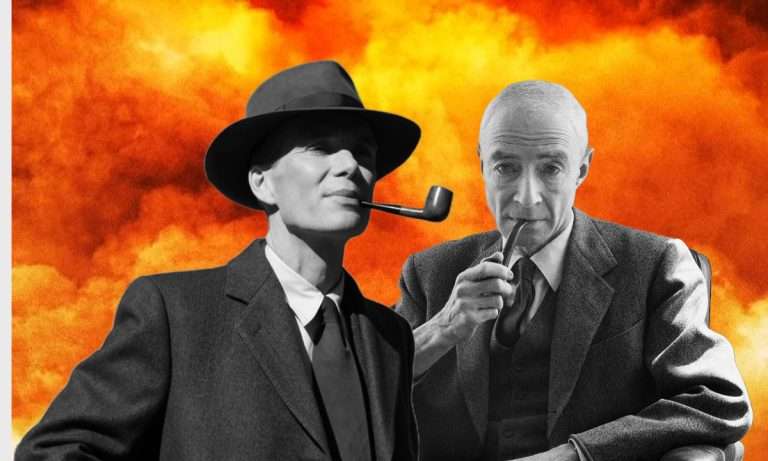Guadalajara (Jalisco, Mexico) has long been a cultural hotspot for the LGBTQ community. The place is known for its diversity, and has been the long-running epicenter where different cultures and identities meet. In fact, Guadalajara’s Pride parade has become one of the largest in Latin America. Naturally, the place embodies a hundred different stories to be told, desperately kept dormant in fear of spilling over the less accepting and tolerant demographics across its varied neighborhood. William Napier’s tender coming-of-age drama, “Guadalajara”, is not set in the diverse city of Mexico that its title may mislead you to believe. Instead, it uses the same name and conventions associated with the place to tell a story about the harrowing experiences of people being indifferent to you based on your own identity.
The film opens with an extremely long opening-credit sequence. As the credits roll in front of the screen, you’re slowly invited into the crowded neighborhood of California (east L.A, to be more specific) where our central characters live. The glimpse into their mundane routine is interspersed with more open landscapes where a thousand different dreams arrive every day to pursue their American dream.
After nearly 6 minutes of the background music playing in the background, we’re introduced to Sonya (played by Valeria Chave), a Mexican immigrant. She lives in a small house with much smaller ambitions. “I ask that you help me with work today to be able to pay the rent”, she prays to God at the start of each day. Her son Guadalajara Bustamante (Alexander Justin Gonzales), as we soon learn, is a high school dropout. Sonya, an immigrant mother living on the fringes of an ever-expanding state, spends her days insecure, attempting to push through them at the expense of her own self.
The story of the film seems to be very much inspired by the true events of a trans teen, and her personal struggles living with her sex-working mother. The most noteworthy thing here remains the way in which Sonya has been humanized. Although the actress plays the role in a one-noted manner, there is enough emotional underpinning to keep her from becoming a complete caricature. On the other hand, however, the story remains primarily about Guadalajara – it’s her journey of switching genders to befriending two girlfriends that forms the narrative stronghold of the movie.
In one of the more effective scenes early on, we see the character being bullied by these two girls – Coneja and Esme – while Guadalajara is stripped off the simple pleasures of having chocolate in a public park. Later, after accepting her true identity as a woman, she befriends the same two girls who humiliated her at first. But is she doing this for validation, or for actually forming strong relationships? Will the company Guadalajara gradually finds herself around lead her to a path of irreversible destruction – as her mother warns her – or will it help her find some personal footing?

The screenplay of the film is co-written by the director himself, along with writer & actor Alexander Justin Gonzales. It marks their first time working together on a feature, and the same is reflected even in the dialogue. Despite the fact that there is a lot of culturally layered, rich subtext to be explored with the backdrop of California, the film lacks the intertextuality that the story requires. After all, behind the facade of being an enormously progressive state, the state is also one of the places in the United States with the greatest economic disparity, exacerbated by the crippling issue of homelessness.
There is, however, one extremely telling scene during the film’s first act that takes place inside a convenience store. We see Guadalajara enter the market, and with the frame being focused on her, we see a masked armed man in the background. However, our protagonist casually continues to shop, and leaves the shop in a rather nonchalant way. The film would’ve worked much better if it had more of these grounded moments that played with the genre conventions. But it rather laboriously pushes itself through reverse engineered dialogue and character motivations to reach its emotional closing minutes.
Ultimately, “Guadalajara” remains a fairly personal queer drama that makes for an accessible yet somewhat underwhelming watch. With a running time of 1 hour and 26 minutes, it does a fair job at making us root for its emotionally complex protagonist, but not enough to turn her tragic journey into a riveting drama.

![Suffering Of Ninko [2017]: NYAFF Review](https://79468c92.delivery.rocketcdn.me/wp-content/uploads/2017/07/main_suffering_of_ninko_1_pc_courtesy_of_asian_shadows-1600x900-c-default-768x432.jpg)
![The Woman in the Window [2021]: Netflix Review – Predictable Hitchcockian thriller dwindles while trying to outsmart the viewer](https://79468c92.delivery.rocketcdn.me/wp-content/uploads/2021/05/The-Woman-in-the-Window-highonfilms-768x512.jpg)
![The Scoundrels [2019]: ‘NYAFF’ Review – A Standard Fare Which Could Have Stood Out with a Different Approach](https://79468c92.delivery.rocketcdn.me/wp-content/uploads/2019/07/The-Scoundrels-1-high-on-films-768x432.jpg)


![Village Rockstars [2017]: Filmmaking Finds a Way](https://79468c92.delivery.rocketcdn.me/wp-content/uploads/2018/04/VR-film-still-2-768x382.png)